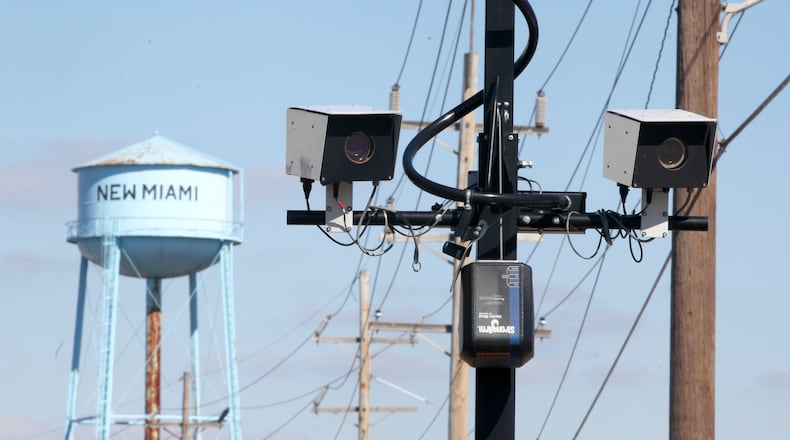New Miami has maintained it has home rule authority to enforce traffic laws and keep its citizens safe from motorists who barrel down the main drag of the village.
Court of Appeals Judge Robert Ringland and his fellow judges said the common pleas judges who found fault with the process were wrong.
“Plaintiffs' arguments concerning the use of hearsay and lack of discovery and subpoena power are unavailing,” Ringland in the opinion released Tuesday. “ASEP afforded the recipient of a notice of liability with a reasonable opportunity to present a defense based on the most likely grounds.”
12th District Judge Robin Piper agreed with the legal opinion but wrote a separate concurrence because he still has issues with the program, that was actually administered by third party vendor OptoTraffic.
“It is disingenuous to say that government interest is predominant when it is a private enterprise that creates the system, manages the system, and then commercially reaps huge profits from a minimalistic civil process...,” Piper, the former Butler prosecutor wrote. “Regrettably, controlling case law has accepted such quasi-judicial administrative procedures as compliant with due process.”
One of the speeders' attorneys, Josh Engel, said they are considering an Ohio Supreme Court appeal.
“We are disappointed, especially since the court (and particularly Judge Piper) seemed to recognize the unfairness of a system designed primarily for profit, not safety,” Engel told the Journal-News.
Retired Butler County Judge Michael Sage deemed the program unlawful in March 2014 and Judge Michael Oster affirmed that ruling and ordered the village repay the tickets and around $400,000 in interest.
New Miami’s outside counsel James Englert said he is glad his clients held firm in the protracted court battle.
“The village is very pleased that the Court of Appeals has found that the administrative hearing procedure satisfied due process,” Englert said. “It was a long battle to overturn the erroneous trial court decision. From the very beginning, the ordinance was drafted to meet constitutional requirements.”
Village officials would not comment on the decision.
He said he doubts the high court would take jurisdiction if the speeders appeal because “the law in Ohio is very clear” as the Supreme Court and other appellate courts have already ruled.
The village has spent more than $260,000 fighting this case that has gone to the appeals courts several times. The litigation has taken three visits to the12th District and two to the Ohio Supreme Court, where jurisdiction was denied. New Miami challenged the lower court’s rulings on class action status twice and a sovereign immunity issue. Until Oster issued his final judgment, the village could not appeal the entire case.
New Miami appealed both the due process issue and the amount Oster said it owed speeders. The speeders filed a cross appeal in the case over the interest amount awarded and the fact Oster didn’t make the village pay immediately. He instead set a10-year payback schedule.
The 12th District judges said they didn’t need to address those issues because the due process ruling rendered them moot.
The speed cameras won’t begin rolling again any time soon however because the village is also locked in litigation with the state over punitive new laws that have curtailed their program. New Miami asked Common Pleas Judge Greg Howard to issue a temporary restraining order and injunction against the state. Howard denied the TRO and has yet to rule on the injunction.
CONTINUING COVERAGE
The Journal-News has followed this unusual case that could have an impact on other jurisdictions throughout multiple court systems to make sure you understand what it means and what comes next. We are committed to using reporters in our communities to follow the most important stories, even if that takes months or years.
About the Author

